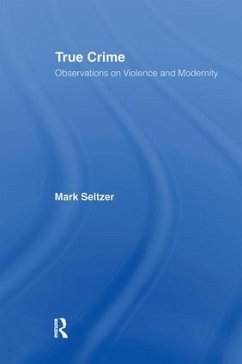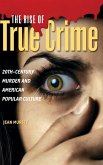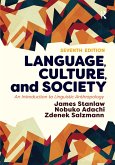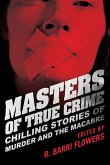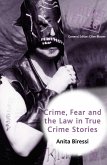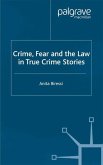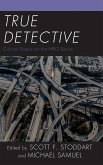In his widely read "Serial Killers", American studies scholar Mark Seltzer analyzed the American obsession with violent accident-vehicular homicide, serial murders, and other spectacularly awful events. "True Crime" carries the argument of "Serial Killers" into a broader arena. Browse a bookstore, writes Mark Seltzer, and you will find a healthy shelf labeled "Crime." Besides it may be a smaller, seedier shelf labeled "True Crime." The first is popular crime fiction, the second crime fact. Fictional crime has taken over, and the culture. Using crime as his canvas, Mark Seltzer offers a dazzling analysis of how our cultural fantasies, fears, and desires have blurred the distinction between fiction and real event, from Edgar Allan Poe's detective stories up to Patricia Highsmith's ambiguous Ripley and the rash of reality TV shows.
True crime is crime fact that looks like crime fiction. It is one of the most popular genres of our pathological public sphere, and an integral part of our contemporary wound culture-a culture, or at least cult, of commiseration. If we cannot gather in the face of anything other than crime, violence, terror, trauma, and the wound, we can at least commiserate. That is, as novelist Chuck Palahniuk writes, we can at least "all [be] miserable together." The "murder leisure industry," its media, and its public: these modern styles of violence and intimacy, sociality and belief, are the subjects of True Crime: Observations on Violence and Modernity. True Crime draws on and makes available to American readers-and tests out-work on systems theory and media theory (for instance, the transformative work of Niklas Luhmann on social systems and of Friedrich Kittler on the media apriori-work yet to make its impact on the American scene). True Crime is at once a study of a minor genre that is a scale model of modern society and a critical introduction to these forms of social and media history and theory. With examples, factual and fictional, of the scene of the crime ranging from Poe to CSI, from the true crime writing of the popular Japanese author Haruki Murakami to versions of "the violence-media complex" in the work of the American novelist Patricia Highsmith and the Argentinian author Juan José Saer, True Crime is a penetrating look at modern violence and the modern media and the ties that bind them in contemporary life.
Hinweis: Dieser Artikel kann nur an eine deutsche Lieferadresse ausgeliefert werden.
True crime is crime fact that looks like crime fiction. It is one of the most popular genres of our pathological public sphere, and an integral part of our contemporary wound culture-a culture, or at least cult, of commiseration. If we cannot gather in the face of anything other than crime, violence, terror, trauma, and the wound, we can at least commiserate. That is, as novelist Chuck Palahniuk writes, we can at least "all [be] miserable together." The "murder leisure industry," its media, and its public: these modern styles of violence and intimacy, sociality and belief, are the subjects of True Crime: Observations on Violence and Modernity. True Crime draws on and makes available to American readers-and tests out-work on systems theory and media theory (for instance, the transformative work of Niklas Luhmann on social systems and of Friedrich Kittler on the media apriori-work yet to make its impact on the American scene). True Crime is at once a study of a minor genre that is a scale model of modern society and a critical introduction to these forms of social and media history and theory. With examples, factual and fictional, of the scene of the crime ranging from Poe to CSI, from the true crime writing of the popular Japanese author Haruki Murakami to versions of "the violence-media complex" in the work of the American novelist Patricia Highsmith and the Argentinian author Juan José Saer, True Crime is a penetrating look at modern violence and the modern media and the ties that bind them in contemporary life.
Hinweis: Dieser Artikel kann nur an eine deutsche Lieferadresse ausgeliefert werden.

